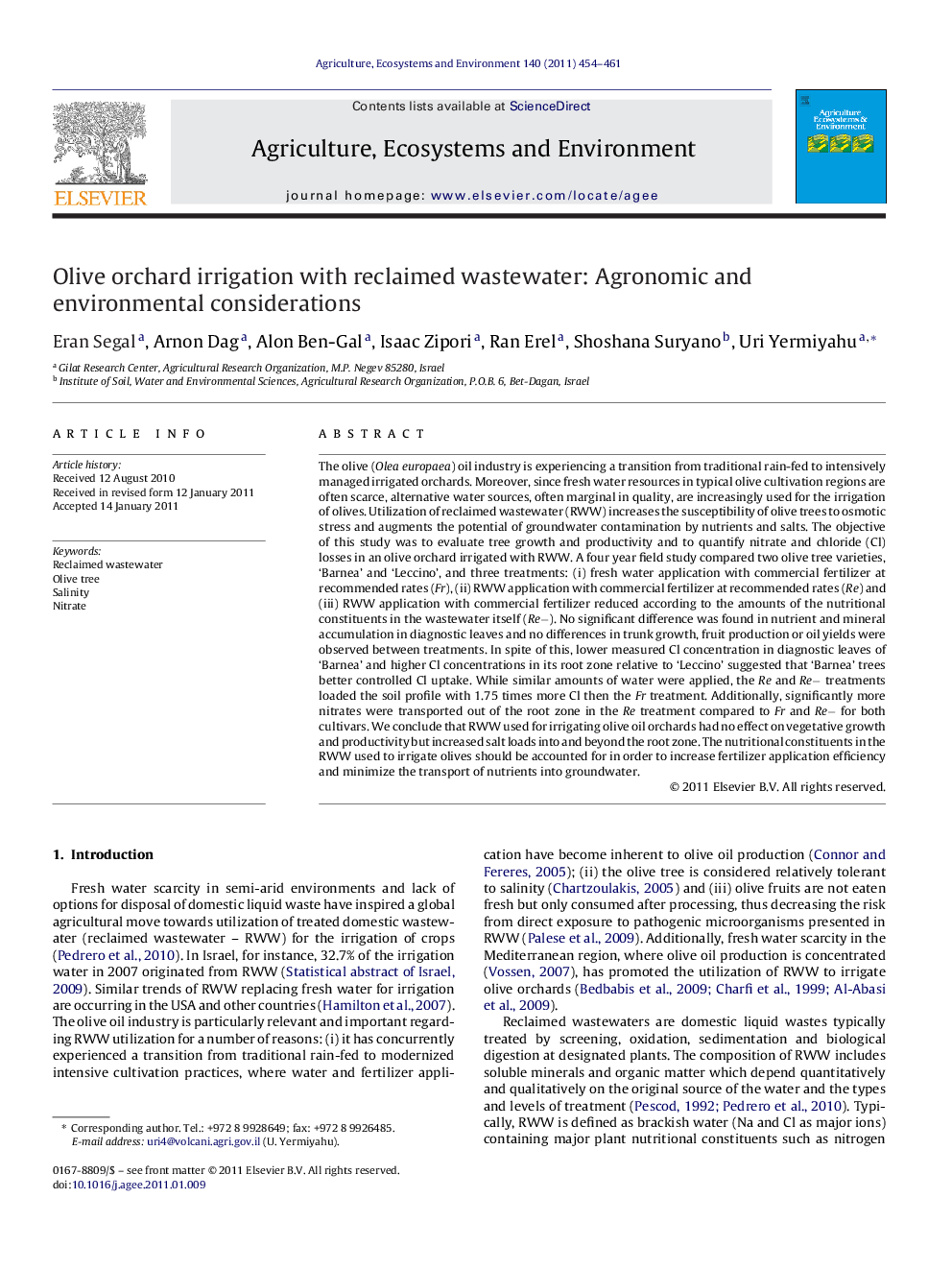| کد مقاله | کد نشریه | سال انتشار | مقاله انگلیسی | نسخه تمام متن |
|---|---|---|---|---|
| 2414734 | 1552110 | 2011 | 8 صفحه PDF | دانلود رایگان |

The olive (Olea europaea) oil industry is experiencing a transition from traditional rain-fed to intensively managed irrigated orchards. Moreover, since fresh water resources in typical olive cultivation regions are often scarce, alternative water sources, often marginal in quality, are increasingly used for the irrigation of olives. Utilization of reclaimed wastewater (RWW) increases the susceptibility of olive trees to osmotic stress and augments the potential of groundwater contamination by nutrients and salts. The objective of this study was to evaluate tree growth and productivity and to quantify nitrate and chloride (Cl) losses in an olive orchard irrigated with RWW. A four year field study compared two olive tree varieties, ‘Barnea’ and ‘Leccino’, and three treatments: (i) fresh water application with commercial fertilizer at recommended rates (Fr), (ii) RWW application with commercial fertilizer at recommended rates (Re) and (iii) RWW application with commercial fertilizer reduced according to the amounts of the nutritional constituents in the wastewater itself (Re−). No significant difference was found in nutrient and mineral accumulation in diagnostic leaves and no differences in trunk growth, fruit production or oil yields were observed between treatments. In spite of this, lower measured Cl concentration in diagnostic leaves of ‘Barnea’ and higher Cl concentrations in its root zone relative to ‘Leccino’ suggested that ‘Barnea’ trees better controlled Cl uptake. While similar amounts of water were applied, the Re and Re− treatments loaded the soil profile with 1.75 times more Cl then the Fr treatment. Additionally, significantly more nitrates were transported out of the root zone in the Re treatment compared to Fr and Re− for both cultivars. We conclude that RWW used for irrigating olive oil orchards had no effect on vegetative growth and productivity but increased salt loads into and beyond the root zone. The nutritional constituents in the RWW used to irrigate olives should be accounted for in order to increase fertilizer application efficiency and minimize the transport of nutrients into groundwater.
Research highlights
► Reclaimed wastewater (RWW) application did not affect olive tree growth or productivity.
► RWW application resulted in enhanced transport of solutes below the root zone.
► When N in RWW was not considered as fertilizer, NO3 leaching was enhanced.
► Continuous application of RWW will likely negatively affect groundwater quality.
Journal: Agriculture, Ecosystems & Environment - Volume 140, Issues 3–4, March 2011, Pages 454–461